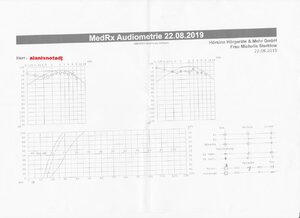Just to elaborate a bit on Hazel's response. We had 43 patients.
7 of these were lost to the study because:
- The patient didn't provide the data at all the milestones (mostly because they didn't respond to reminder emails etc but in one case it was because the device broke).
- The patient didn't tell us that they were quitting due to adverse outcomes.
That left 36. Of these 36, 6 told us they were quitting due to adverse outcomes. That left 30. Of these 30, 29 provided TFI and 1 did not (TFI was optional in the study).
The infographic pertains to the 36 patients. These are the patients who provided information on the results of the treatment either to the 12 weeks, or to the point at which they stopped due to adverse outcomes. That is, these 36 patients are the ones for which we had complete information about the course of the treatment.
The percentages in the infographic come from this chart in the summary report:
An explanation of this chart is in the detailed report. People are classified as getting better if their self-assessed severity rating improved (and similar for no change and got worse).
Ostensibly a more scientific method of determining if someone got better is to use a patient's change in TFI at 12 weeks (a TFI improvement of 13 or more points represents a minimally important clinical difference). If we use this method, we get similar results. 48% of patients who provided TFI improved. If we added in dropouts to adverse outcomes, we see 40% improving, 43% staying the same, and 17% worsening.
One thing however is that the study showed that some groups had much better improvements than others. If you are not in the "No Hyperacusis with Hearing Loss" group, for example, then your chances improve.
Instead of 40% improving, 43% staying the same, 17% worsening, they become 48% improving, 31% staying the same, 21% worsening. If you are in the "No Hyperacusis with Hearing Loss" group it looks like this treatment is probably not for you (6 out of 6 had no improvement).
Of course all these results have the huge caveat that we had no control arm!

 Member
Member Director
Director


